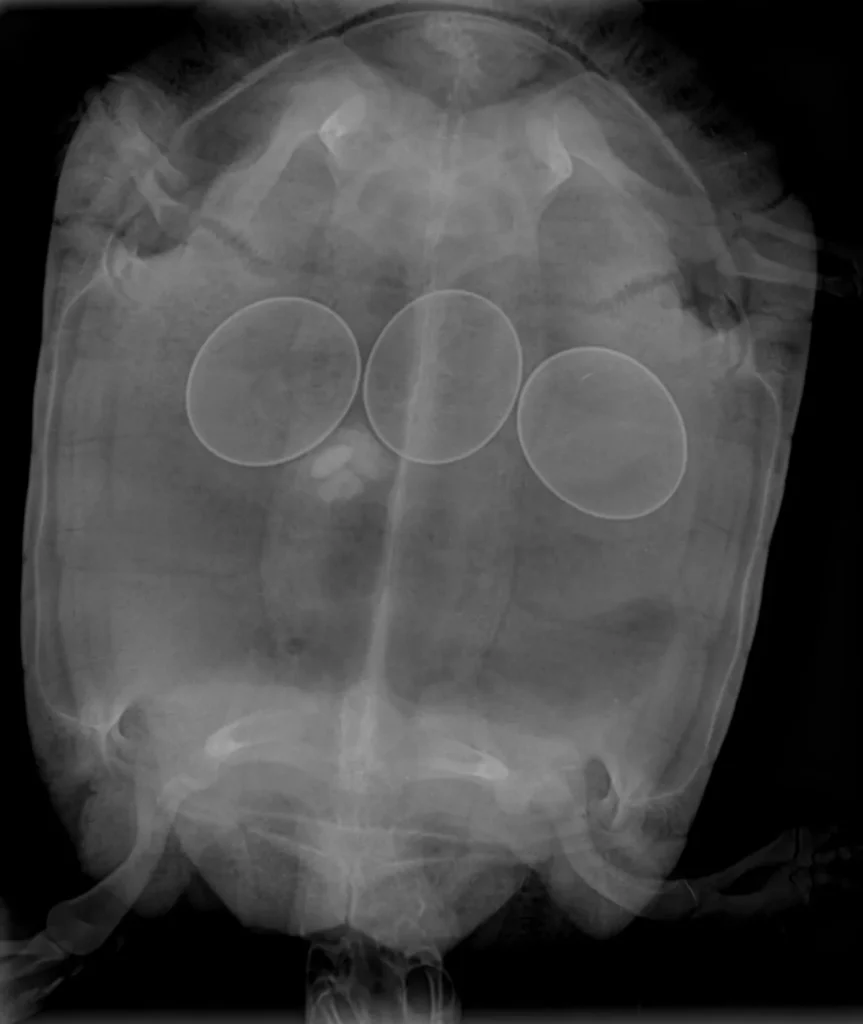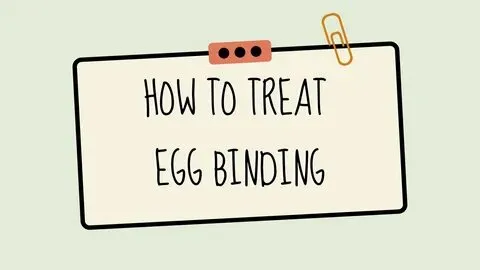Baby Chicks and Beyond: Understanding and Preventing Egg Binding in Your Flock
There is nothing more rewarding than raising chickens, those cute little fluffy baby chicks to the great looking laying hens...

There is nothing more rewarding than raising chickens, those cute little fluffy baby chicks to the great looking laying hens that they grow up into. Nothing is so much fun as gathering the fresh eggs every morning! However, not always everything turns out well and one of the most terrifying issues a hen can encounter is egg bound. This implies that an egg can get lodged inside her and she could not lay it. It is a much serious escapade, an emergency even that is threatening life. Since I am very concerned about the health of my flock at all ages, I have done a lot of research about this condition. I would like to tell you what I found out on trusted websites that you will never get an egg binding, and will be able to recognize, treat and of utmost importance, prevent it, beginning already with those initial days in your nest of baby chicks.
Key Takeaways: Your Quick Reference Guide
Here are the 5 most common questions about egg binding and its prevention:
- What are the very first signs my hen might be egg bound? Look for the hunched “penguin” stance, lethargy, straining, tail pumping, and a swollen or protruding vent.
- What’s the single most important thing I can do to prevent egg binding? Provide laying hens with free-choice oyster shell or limestone flakes separately from their feed for essential calcium.
- My hen seems egg bound right now, what should I do immediately? Isolate her in a warm (85-90°F), quiet place. Give her a warm Epsom salt bath for 15-20 minutes, lubricate her vent, offer calcium, and let her rest. If no egg passes within 1-2 hours, get veterinary help.
- How does raising baby chicks help prevent egg binding later? Feeding baby chicks proper starter feed builds strong bones and bodies. Avoiding layer feed until they start laying prevents kidney damage and sets them up for healthier egg production.
- Besides calcium, what else helps prevent egg binding? Ensure constant clean water, avoid obesity through exercise and diet control, minimize stress, and provide a high-quality layer feed for balanced overall nutrition.
What is Egg Binding?

In simple terms, egg binding is failure by a hen to lay an egg which has been matured. The movement of the egg through the oviduct and the vent is normally smooth. But there are situations when it gets tangled up somewhere halfway. It is not only uncomfortable to hens; it is dangerous. The trapped egg will be able to push against nerve cells and blood vessels. In addition, it may lead to internal injuries or even infection. Unfortunately, when not treated promptly, it may be deadly. Thus, being aware of the symptoms is quite essential to any chicken keeper. Learn more by reading this Wikipedia Report.
What to Watch Out For: The Most Important Symptoms
A hen who is egg bound will clearly show she’s in distress. Here’s what to watch for, especially if your normally active hen seems off:
- The “Penguin Stance” or Hunched Appearance: This is a classic sign. She might stand or walk strangely, often looking very hunched up. Her tail might pump up and down noticeably as she strains. Think of how a penguin stands – it’s similar.
- Lethargy and Weakness: An egg-bound hen loses interest in everything. She’ll likely stop eating and drinking. You’ll find her sitting quietly, often away from the flock, looking miserable and puffed up.
- Straining and Discomfort: It may appear swollen, red or stick out strangely. At other times you may even see the actual egg swelling out or see it. It could have mucus or discharge..
- Vent Changes: Check her vent (the opening where eggs come out). It might look swollen, red, or protrude oddly. Sometimes, you might even see the egg itself bulging or catch a glimpse of it. There might be mucus or discharge.
- Abdominal Enlargement and Heating: You could experience the feeling that her abdomen is especially hard, distended, or hot when you touch it in comparison to the others.
- Labored Breathing: The pressure and pain can sometimes make breathing difficult.
If you see any combination of these signs, you need to act immediately. Time is critical.
Read More : The Hidden Costs of Skipping Commercial Furniture Cleaning
Why Does Egg Binding Happen?
Understanding the causes helps us prevent it. Based on the information available, several factors can lead to a hen becoming egg bound:
- Lack of Calcium: This is arguably the biggest culprit. Eggshells are composed practically of calcium. Without enough calcium in the diet, a hen will rob bone mineral to produce the shell. Sometime she may not have much easily available. It may result in bad eggshells that are soft or rubbery and lack the appropriate push against the muscles or, worst, deformed eggs, which become stuck.
- Poor Overall Nutrition or Dehydration: Lack of required amount of vitamins and minerals (such as Vitamin D, E and selenium that help to maintain healthy muscle and nerve function) or even just lack of enough calories to meet a hens daily energy requirements can deplete a hen.
- Obesity or No Exercise: This is more likely to happen to overweight hens or hens that have limited space in cages and no mobility. Deposits of fat in the vicinity of the oviduct may physically obstruct the way of the egg. Exercise also keeps the muscles in tone including those internal muscles of layings.
- Genetics and Age: There appear to be predisposed breeds to it. Young pullets in their first few laying hours and older hen whose reproductive systems are slowing down are also more prone.. Extremely large eggs (double-yolkers are common culprits) or oddly shaped eggs are simply harder to pass.
- Stress or Sudden Fright: Believe it or not, a major scare during the laying process can cause muscles to spasm and clamp down, trapping the egg. Anything that stresses your hens – predator attacks, drastic environmental changes, bullying – can potentially contribute.
- Previous Reproductive Issues: Hens who have had problems like prolapse or past bouts of egg binding are more likely to experience it again.
What to Do Or How To Treat If You Suspect Egg Binding

It is stressful to find an egg-bound hen. Regular advises suggest the following pattern:
- Isolate Gently: her gently to an area which is quiet, and warm (roughly 85-90F / 29-32C), low-light. A crate that is covered with towels serves the purpose. Stress is no good so it is necessary to be calm and warm.
- Oil the Vent: This should be done after the bath, when she is still warm and relaxed, using a large amount of water-based lubricant (such as KY Jelly) unless she has an absolute aversion to that jelly] light enough to be barely felt) around and slightly within the vent. The one golden rule to remember is never to be pushed. That aids in decreasing the friction in case the egg begins to move.
- Give Hydration and Calcium: Give her water that has electrolytes. More to the point, provide her with a quick calcium supply. Fast-acting calcium gluconate (injectable, taken orally oral dosage of calcium gluconate should be consulted with a vet) takes its action within 10-20 minutes. Water or plain calcium powder mixed with some yogurt or applesauce can also be helpful by crushing Tums (calcium carbonate). Calcium plays the role of promoting contractions.
- Quiet Observation: Place her back in her warm, quiet isolation area. Often, the combination of warmth, relaxation, lubrication, and calcium allows her to pass the egg within an hour or so.
- DO NOT Force the Egg: It’s incredibly tempting to try to extract the egg, but this is extremely dangerous unless done by a skilled professional. You can easily rupture the oviduct or cause severe internal injuries, leading to death.
What If It Doesn’t Work? Seeking Veterinary Help
If she hasn’t passed the egg after the bath, lubrication, calcium, and an hour or two of quiet rest, you need a veterinarian experienced with poultry. Do not wait overnight. The longer the egg is stuck, the higher the risk of permanent damage, infection (like peritonitis), or death. A vet can:
- Administer stronger calcium or hormone injections (like oxytocin) to stimulate contractions.
- Carefully extract the egg using specialized techniques and lubrication.
- Provide fluids and antibiotics if needed.
- Advise on prognosis and future care.
The Long-Term View: Caring for Hens as They Age
As hens get older, their reproductive systems naturally slow down. They might lay fewer eggs, and those eggs might be larger or have slightly weaker shells sometimes. Continue providing excellent nutrition (layer feed + oyster shell), clean water, low stress, and plenty of space. Watch older hens a little more closely for any signs of difficulty. Some hens prone to binding might benefit from occasional calcium supplements (like calcium-rich treats) during heavy laying periods, but always prioritize oyster shell as the main calcium source. Know when to let a hen retire gracefully from laying; constant strain takes its toll.
Conclusion
Dealing with an egg-bound hen is frightening, but being prepared makes a huge difference. Recognizing the symptoms quickly and knowing the initial steps (warm bath, calcium, vet call) can save her life. However, the real victory lies in prevention. By focusing on excellent nutrition starting with your baby chicks, ensuring constant access to calcium via oyster shell once they lay, providing clean water, promoting exercise, and minimizing stress throughout their lives, you drastically reduce the chances of this scary emergency happening in your flock. Raising healthy chickens is a journey that begins with those first cheeps in the brooder.






